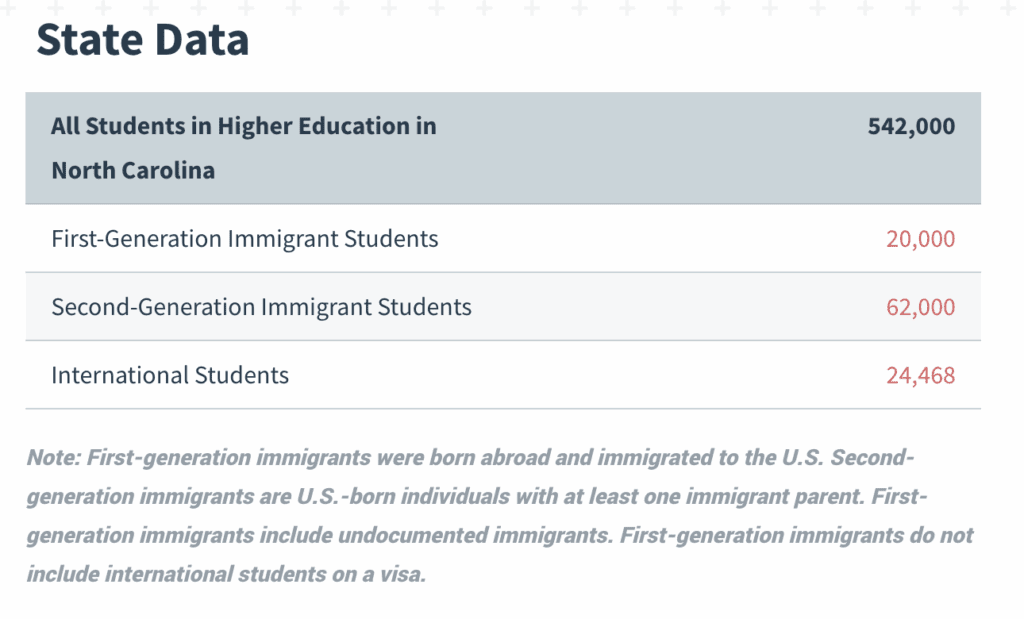
At the start of the school year, the U.S. Department of Justice said that it won’t defend Hispanic-Serving Institutions (HSIs) from a recent lawsuit filed by the State of Tennessee and the group Students for Fair Admissions. The suit says HSIs — which must, among other requirements, enroll at least 25% Hispanic students to qualify to apply for specific federal grants through the program — are “unconstitutional” and “discriminatory.”
A July 25 letter from U.S. Solicitor General D. John Sauer to House Speaker Mike Johnson said Sauer agreed with the plaintiffs that the HSI program “violates the Constitution.”
Since then, the Trump administration has said it also agrees is eliminating the grant programs for HSIs and other Minority-Serving Institutions (MSIs). At the time of the announcement, U.S. Secretary of Education Linda McMahon said the grants “discriminate by restricting eligibility to institutions that meet government-mandated racial quotas.”
A press release from the Department of Education (DOE) said approximately $350 million in discretionary funds were expected to be allocated to support HSI and MSI programs in fiscal year 2025, including new awards and non-competing continuations.
“These funds will be reprogrammed into programs that do not include discriminatory racial and ethnic quotas and that advance Administration priorities,” the release said.
![]() Sign up for the EdWeekly, a Friday roundup of the most important education news of the week.
Sign up for the EdWeekly, a Friday roundup of the most important education news of the week.
Federal changes to MSI programs come as the Trump administration is narrowing how the government defines “federal public benefits,” limiting immigrants’ access to federal benefits, including some that have been available to children for decades — such as education resources and services for multilingual learners and students without legal status.
While, together, these federal policy shifts reflect fewer resources for multilingual, immigrant, and minority students, education leaders across the country are emphasizing that the goal for schools remains the same: to serve students.
“We must reframe HSI because legislation, policy, and legislators should not dictate the ways we serve students,” UC Berkeley education professor Dr. Gina Ann Garcia wrote in an August blog post. “… The (Tennessee) lawsuit has important implications for the future of the federal designation and funds earmarked for HSIs, but it cannot erase Latine/x students or the legacy of HSIs.”
North Carolina leaders are sending a similar message.
“Education is a human right, and every child should feel safe, supported, and able to thrive, regardless of their background,” Elaine Townsend Utin, executive director and co-founder of LatinxEd said in an Aug. 27 press release. “At LatinxEd, we know that representation, language access, fully funded public schools, and strong postsecondary pathways are essential for building thriving communities. We will continue advocating until every student has access to pursuing higher education.”
In North Carolina, there are 20,000 first-generation immigrant students enrolled in colleges and universities and 62,000 second-generation immigrant students, according to data from the Higher Ed Immigration Portal.
Below, you can find a look at the impacts federal changes from the Trump administration are having on schools and the Latino, immigrant, and multilingual students and families they serve.
But first, here’s more on what’s happening with HSIs.
More on MSIs, including HSIs
According to the MSI Data Project, MSIs are “postsecondary colleges and universities that enroll some of the most racially and ethnically diverse students across the United States, the Caribbean, and the Pacific Islands.”
Federal funding designations for MSIs are available through grant programs authorized under the Higher Education Act of 1965, which was intended to support postsecondary institutions struggling to survive due to financial limitations. In the 1986 authorization of the HEA, Congress amended the program to specifically make institutions with large populations of minority and low-income students eligible.
However, according to a 2023 report by Congress, many MSI programs authorized under HEA were historically funded through annual discretionary appropriations until 2007, when “mandatory appropriations have also been provided for many of the programs.”
“Many MSIs have faced challenges in securing adequate financial support, thus affecting their ability to develop and enhance their academic offerings and ultimately serve their students,” the 2023 report says. “Federal higher education policy recognizes the importance of such institutions and targets financial resources to them.”
Importantly, receiving an MSI designation does not automatically mean a college will receive federal grant funding. Rather, the MSI designation makes a college eligible to apply for grants, which involve a competitive application process.
Across the U.S., there are nearly 800 MSIs, including roughly 500 that received funding, according to 2021 data from the MSI Data Project. There are 11 different MSI designations, including HSIs, Historically Black Colleges & Universities (HBCUs), Asian-American and Native-American Pacific Islander Serving Institutions (AANAPISI), and Predominantly Black Institutions (PBI), among others. Institutions can earn an MSI designation based on meeting a certain enrollment threshold or based on an explicit mission to serve their respective student populations. MSIs must also serve large populations of low-income students.
In North Carolina, there were 19 MSIs in 2021, including 13 colleges that received funding — five HBCUs, three NASNTIs, and five PBIs. Since then, North Carolina has gained several MSIs.
For HSIs specifically, there are roughly 600 across the country, according to 2023-24 data from the Hispanic Association of Colleges and Universities, including 236 community colleges and 191 public four-year institutions.
In North Carolina, there were three HSIs and 19 emerging HSIs in 2023-24 — all community colleges.
It is not yet clear how much of the $350 million in MSI funding was allocated toward North Carolina colleges and universities this fiscal year. According to a report by Inside Higher Ed, the top five locations for HSIs are California, Texas, Puerto Rico, Illinois, and New York. For context, California’s community colleges will lose about $20 million in HSI funding that would have largely supported STEM and dual enrollment students.
“We have to support our students,” Sonya Christian, the statewide chancellor for the community colleges, said in an interview with Ed Source. “Our colleges are scrambling to figure out how they can have continuity in the services that we have promised.”
Since the DOE’s announcement, education leaders and advocates across the country have called for a continuation of the HSI funding.
Earlier this month, the American Council on Education (ACE) wrote a letter to federal lawmakers cosigned by 21 education councils and associations.
“The abrupt and deeply damaging elimination of funding this late in the fiscal year for MSIs will cause irreparable harm to hundreds of institutions that are currently receiving funding, most of which are open or near open enrollment,” the letter says. “Together, MSIs enroll millions of students, and terminating funding for these institutions will directly harm the educational experiences of all students on their campuses and our nation loses.”
Less than a week after the DOE announced the end of MSI grants, it also announced one-time investments in HBCUs and Tribally Controlled Colleges and Universities (TCCUs) to support “the unique and historic contributions of these institutions of higher education.” At the same time, the department also announced new funds for charter schools and American history and civics programs.
“The Department has carefully scrutinized our federal grants, ensuring that taxpayers are not funding racially discriminatory programs but those programs which promote merit and excellence in education,” McMahon said.
In response, education advocates have said that HSI grants are also merit based, given that an HSI designation does not automatically ensure program funding for an institution and that grant applications are competitive.
In a Sept. 15 article, Excelencia in Education CEO Deborah Santiago said that improving the capacity of HSIs increases access to educational opportunities for Americans of all backgrounds. Further, the amount of federal funds allotted for competitive HSI grants are “small relative to the transformational work invested for innovation that improve educational outcomes for all enrolled students, regardless of race.”
HSIs operate with fewer resources yet serve the fastest-growing segment of the college-age population. Supporting HSIs is therefore a strategic investment in America’s competitiveness, democracy, and shared prosperity.
— Excelencia in Education CEO Deborah Santiago
Education advocates argue the termination of HSI funding will have negative impacts on closing achievement gaps, meeting attainment goals, and developing a high-quality workforce.
“However,” the MSI Data Project says, “it should be noted that formal and informal education and schooling has existed for Black, Indigenous, and people of color far before any formal federal recognition of MSIs.”
Services for multilingual learners
In August, the DOE also quietly rescinded a 2015 “Dear Colleague” letter that outlines how schools can comply with legal obligations to serve multilingual learners.
Advocates first became aware of the rescission the week of Aug. 11, according to a report by Education Week, “calling it the latest effort by the federal government to weaken protections for the nation’s more than 5 million English learners.”
This year alone, the Trump administration has:
Education Week article
- Revoked a policy memo declaring schools a “protected area” from immigration enforcement, leaving school districts serving immigrant students and English learners to address safety concerns for students and their families;
- Laid off almost all employees in the federal office dedicated to English learners;
- Withheld federal dollars intended for English learners, known as Title III Part A formula grants (and though the funds were eventually released to states, President Donald Trump still calls for cutting this funding for the 2026-27 school year);
- And issued an executive order declaring English the country’s official language, with the U.S. Department of Justice publishing initial guidance in July aimed at minimizing “non-essential multilingual services.”
The 40-page Dear Colleague letter, issued during the Obama administration, was not legally binding but helped schools and districts navigate how to serve multilingual learners under federal law. The letter now has a notice in red at the top saying it remains available “for historical purposes only.”
In an emailed statement to Ed Week on Aug. 20, a DOE spokesperson said the 2015 Dear Colleague letter was rescinded “because it is not aligned with administration priorities.”
Under the Civil Rights Act and other federal laws, schools are required, among other things, to identify and assess English learners in need of language assistance in a timely manner, provide English learners a sufficiently staffed language assistance program, and ensure English learners have equal opportunities to participate in all school-offered activities.
The Dear Colleague letter also included scenarios that the DOJ and DOE’s offices for civil rights would investigate if they received complaints. According to the Ed Week article, “the decision also suggests the administration’s shifting priorities around which discrimination complaints it prioritizes in K-12 schools and could trigger an investigation.”
The federal laws regarding English learners’ rights remain intact. However, education advocates worry the rescinded DOE guidance signals the Trump administration will attempt to further weaken the rights for multilingual students in the future.
In its Aug. 27 statement, LatinxEd called on “community members, educators, and policymakers to unite in support of multilingual learners and Latine students by ensuring schools and higher education institutions remain safe, accessible, and fully resourced.”
“At LatinxEd, we believe that every student deserves to feel seen, supported, and able to thrive, regardless of what language they speak at home or where their family comes from,” the statement said. “Nearly five million multilingual learners across the nation, including more than 125,000 in North Carolina, now face the risk of losing critical resources and protections that have helped them succeed in school. We’ll continue working to ensure these doors to opportunity remain open to our communities.”
Read more



Access to Head Start, career and technical education
For more than 40 years, students without legal status have been allowed to attend public schools free of charge in districts across the country, and over time that has included access to early education and postsecondary opportunities.
Federal case law cites reasons for this decision, including:
- Not wanting to penalize children for their presence in the country;
- Recognizing that many students will remain in the country, some becoming lawful residents or citizens;
- Not perpetuating “a subclass of illiterates within our boundaries, surely adding to the problems and costs of unemployment, welfare, and crime;” and
- Concluding that “whatever savings might be achieved by denying these children an education, they are wholly insubstantial in light of the costs involved to these children, the State, and the Nation.”
In July, the 74 reported, “From cradle to career, President Donald Trump has launched a comprehensive campaign to close off education to undocumented immigrants, undercutting, advocates say, the very reason many came to the United States: for a chance at a better life.”
In September, a federal judge issued a nationwide block on a federal directive — released in July — that would have prevented children without legal status from enrolling in Head Start, a federally funded preschool program. Immigrants without legal status have had access to Head Start since a 1998 interpretation of the Personal Responsibility and Work Opportunity Reconciliation Act of 1996 (PRWORA).
On July 10, the U.S. Department of Health and Human Services (HHS) said in a press release, “Head Start is reserved for American citizens from now on.”
Before the judge’s decision, Head Start associations in several states filed suit against the change. Additionally, a coalition of 21 Democratic attorneys general — not including North Carolina’s — were able to temporarily halt the policy’s implementation within their own states.
However, with the September block on the directive, the policy is now on hold across the country. Education advocates have since praised the judge’s decision.
“Early education should be available to every single child in this country, full stop,” said Whitney Pesek, senior director of federal child care policy at the National Women’s Law Center (NWLC), in a press release. “We’re relieved that the court halted the Trump administration’s illegal and cruel attempt to ban certain immigrant children from accessing Head Start, a program that has expanded opportunity for countless children nationwide. We will keep working with our partners to ensure that this policy is terminated permanently.”
Andrew Nixon, an HHS spokesman, said the agency disagrees with the court’s decisions and is evaluating next steps, according to a report by the Associated Press. You can check the status of all lawsuits against the Trump administration at the AP’s lawsuit tracker.
Related reads


Also on July 10, the DOE announced “it will end taxpayer subsidization of illegal aliens in career, technical, and adult education programs.”
Like Head Start, the department said that postsecondary education programs — “including adult education programs authorized under Title II of the Workforce Innovation and Opportunity Act of 2014, postsecondary career and technical education programs under the Carl D. Perkins Career and Technical Education Act of 2006, and other programs when used to fund postsecondary learning opportunities” — constitute “federal public benefits” subject to citizenship verification requirements.
“This policy shift threatens to undermine community development, workforce readiness, and economic mobility across the nation,” says a July 16 statement issued by The Presidents’ Alliance on Higher Education and Immigration. “Many of the named programs are a central component of the nation’s community colleges and provide access for continuing and returning adult learners.”
More than two months since the DOE’s announcement, college leaders remain confused on what this policy means for their students and enrollment numbers, according to an Oct. 2 report from Work Shift.
The article says K-12 Career and Technical Education (CTE) courses are protected for now due to a longstanding Supreme Court ruling that states can’t prevent students without legal status from attending public schools.
“But it’s unclear how dual enrollment might be impacted,” the article says.
Higher education leaders are confused about what the directive practically means, Work Shift reported, and many are holding off on doing anything until there is further guidance from the Trump administration.
“For now, it appears most institutions are not making big changes in screening students based on immigration status or barring them from CTE programs,” the article says. “But education and immigration advocates warn about the impact that these statements from the White House will have on their future enrollment and job prospects.”
LatinxEd’s Alice Dolbow told Work Shift that, “With this new guidance, we’re concerned about not only undocumented students, but the chilling effect this could potentially have on all students from immigrant families.”
Resources for schools and students
More than 1 million immigrants live in North Carolina, according to data from the American Immigration Council, about 9.3% of the state’s population. An additional 5.3% of the state’s U.S.-born residents live with at least one immigrant parent, and immigrants make up 12% of North Carolina’s labor force.
“As neighbors, business owners, taxpayers, and workers, immigrants are an integral part of North Carolina’s diverse and thriving communities and make extensive contributions that benefit all,” the council’s website says.

Across the U.S., first and second-generation immigrants make up 31% of all students enrolled in higher education, the Higher Ed Immigration Portal website says.
There are 510,000 students without legal status enrolled in higher education institutes in the United States, according to the portal, and an estimated 12,024 in North Carolina. Approximately 3,000 students without legal status graduate high school each year, according to the data.
“In their pursuit of higher education, undocumented students actively ready themselves to fill critical skill shortages and become better positioned to support their families, communities, and the U.S. economy,” the website says.
There are also 24,468 international students in North Carolina colleges and universities, the portal says.
So how can North Carolina schools and educators support immigrant students and families following all of the changes taking place at the federal level?
Consulting firm EducationCounsel recently released a report looking at immigrants’ access to federal public benefits.
The report includes several recommendations for education leaders on “how to best serve affected children and students during this period of rapid change.” Those recommendations include:
- Monitor legal developments,
- Await further guidance and avoid acting precipitously,
- Review closely all verification documents from federal agencies,
- Understand the exemptions under PRWORA (the Personal Responsibility and Work Opportunity Reconciliation Act of 1996), and
- Explore avenues to maintain continuity, including non-federal funding alternatives.
“The convergence of activity to limit immigration through aggressive enforcement, the erosion of longstanding protections, and the restriction of access to federal public benefits carries deep implications for children, educators, and school communities,” the report says. “These shifts demand vigilance on the part of school and systems leaders and service providers, and may result in deep shifts in the ways that immigrant communities are supported in the short- and long-term.”
UC Berkeley’s Garcia also provided some strategies for “continuing to advance servingness regardless of what happens with the federal government.”
Strategy 1: Use the Servingness Framework. “You can use the framework to assess the campus’s current efforts to serve Latine/x and other racially-ethnically minoritized students. This includes an assessment of the mission and purpose, strategic plan, institutional advancement activities, curriculum and pedagogy, student support services, engagement with the community, and campus physical and educational infrastructure.”
Strategy 2: Disaggregate data to “assess equity in persistence, course completion, graduation, and economic mobility.”
Strategy 3: Build coalitions across minoritized groups. “Educators and leaders at HSI must be more intentional in building and supporting coalitions across racial-ethnic and economic lines. Launching an HSI committee is the perfect opportunity to enhance solidarity.”
Strategy 4: Resist, speak up, and advocate.
UC Berkeley education professor Dr. Gina Ann Garcia, in an August blog post
“I know that we are all overwhelmed and completely disheartened by the attacks on DEI, MSIs, and colleges and universities, in general. And it is OK to rest, take care of yourself, and protect your soul. But don’t get stuck in that space,” Garcia wrote. “Now is the time to speak up. Now is the time to advocate.”
Already, school districts across the country have gotten creative to continue serving all their students, including those without legal status.
For example, school leaders in North Carolina and beyond are reviewing and updating their policies on immigration enforcement, creating immigration emergency funds and safe zones, and training principals on how to respond to ICE raids on school campuses.
In August, Illinois lawmakers passed a new law that codifies the right of students without legal status to receive a free public education. The law also requires school districts to adopt clear policies protecting students from immigration enforcement activities in schools.
In North Carolina, Durham Public Schools released a statement last month saying its commitment to serving all students has not changed, regardless of shifting federal policies.
“While we cannot change federal law, we can and do ensure that within our schools every student, regardless of background, receives a quality education in a safe, inclusive, and supportive environment,” the letter says. “This is the right of every DPS scholar, and we will continue to uphold that promise each and every day.”
The letter said DPS will not allow immigration officers to enter nonpublic areas on campus without a valid judicial warrant. The letter also said it is launching, in collaboration with community partners El Centro Hispano and El Futuro, Café con Pan Dulce — “a series of small, informal gatherings where families can share concerns, ask questions, and hear directly from district leadership.”
“Durham Public Schools is and will remain a community where everyone is welcome and belongs,” the letter says.
LatinxEd said in an email that the DPS letter reflects a “bold and compassionate step forward.”
“This is what community-centered leadership looks like,” LatinxEd said. “… Every Latine student and family deserves more than just safety; they deserve to be truly seen, heard, and valued in every classroom and decision-making space. When we lead with courage and care, educational equity rooted in belonging is possible.”
Recommended reading



